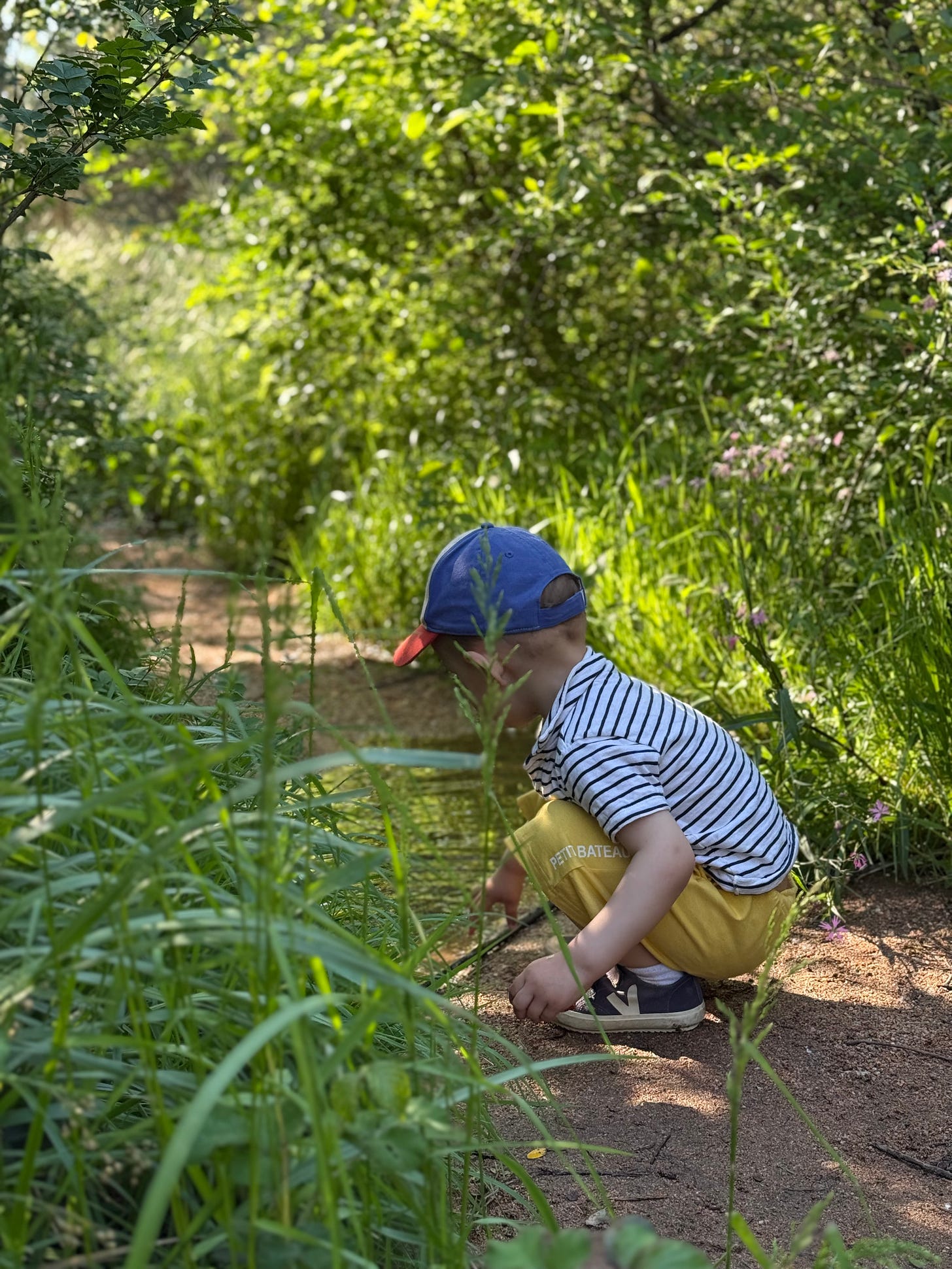Hello hello. During April and May, it feels like French kids are always on les vacances, les jours fériés, or random Wednesdays off. It makes for a scattered brain and a fragmented last edition before the big 100.
1.
I like to think the Argentine writer Jorge Luis Borges would have been spellbound by today’s language models. In his 1941 story The Library of Babel, he imagines an endless library containing every book that could ever exist. Hidden somewhere in its infinite shelves are books that explain everything, and the library’s desperate inhabitants devote their lives to the search.
Turns out Borges actually met Herb Simon:
When Jorge Luis Borges met one of the founders of AI
2.
Paris exploded in green while we were away. A forgotten railroad in Paris which pops up also in our neighbourhood. Beekeeping school in Luxembourg Gardens. How nature shows up in names.
Still, there’s nothing like spring in Helsinki.
I’m waiting to see David Hockney at Fondation Louis Vuitton. One of my favorite books to leaf through around this time of the year is Spring Cannot Be Cancelled. Here is Hockney, comparing California spring to Scandinavia:
Do you remember Walt Disney’s Fantasia? In the original version, they used Stravinsky’s The Rite of Spring for one section. But they didn’t get what Stravinsky’s music was about — they used dinosaurs trampling about. It struck me that the Disney people had been in southern California for too long. They had forgotten northern Europe and Russia, where you go from winter to everything forcing itself up through the earth. That is the force in Stravinsky: not dinosaurs pushing down, nature coming up!
4.
The first two reviews I’ve seen of the book are kind. They see something I tried to do. As a children’s book author, I’m used to warmth. But not this kind of dialogue.
Kirsi says she was unexpectedly moved. She writes:
“Liukas moves from algorithms to mycelium, walks through the who’s who of computing, visits museums and factories, flâneurs in Paris, and traces the growth of an AI alongside a human child.
She’s a damn good writer. Her sentences flow and sing. She makes technology feel.”
Kaisa, writing for a journal read by math and science teachers, notices something else. She writes:
“If you’re deeply familiar with computers, read this book — you’ll see things in new ways.
If you’re not, and don’t care to be, read this book anyway.”
5.
I just finished Chaim Gingold’s Building SimCity. I loved so much about it. The book combines a technical deep dive with game development history. It also traces the ideas and influences behind SimCity. It treats software critique as a field. It shows how computer simulation and urban planning can be connected in surprising ways.
The last two chapters stood out to me. They include beautifully drawn illustrations of the code that powers the game. These are worth studying if you ever need to explain complex software ideas to someone.
I think this book might become a reference point for how we write about interactive systems. It is clear, thoughtful, and full of joy.
6.
Someone asked me if curiosity can be learned. I think it can. And I believe it is one of our biggest strengths in a world shaped by generative AI.
Dorothy Parker once said, "The cure for boredom is curiosity. There is no cure for curiosity." That line stays with me (and we even made a little park bench plaque of it during Covid).
Some of the most inquisitive people I know are not trying to be clever. They are good at asking questions because they are not afraid to admit what they don't know. That is how we grow.
Large language models can help the rest of us practice this muscle.
Sidenote: I have a soft spot for descriptions like these: wordslip, letter-sparkling, alliteration fugue, the numb wrongness of leaping to a distant conceptspace
7.
The Lion, the Witch and the Wonder is a lovely series of essays by written and read by Katherine Rundell on the importance of children’s literature.
8.
Tomorrow, on Thursday, 8th of May, I’m giving a talk on how to create more inclusive, connected communities in tech. It’s especially aimed at educators, and I’ll be sharing stories from my work with Rails Girls, Codecademy, Hello Ruby, and the computer playground.
Also for educators: there is a challenge available here around the previous talk. Download the template, fill it and send it to me, and you can win a mentoring session later in the year.
That’s it! See you when there are two consecutive school days in a row, whenever that miracle happens.





This format feels so natural to you. I loved reading it!